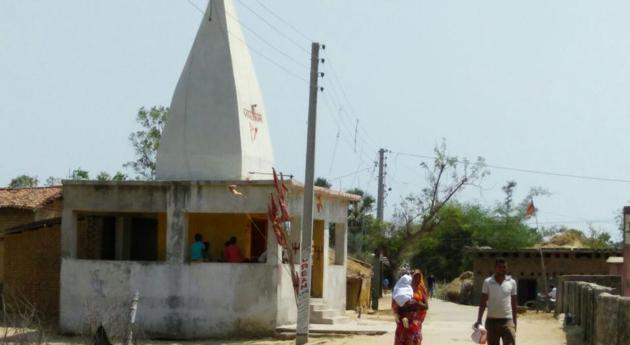These Gaya villagers shunned liquor, ushered in ‘divinity’
The adjacent villages of Haridaspur and Balasot in Maoism-affected Sherghati sub-division of Bihar’s Gaya district now have two temples built from cash fines realised from liquor ban violators.
GAYA Driven by the realization that sale and consumption of alcoholic drinks needed to be discouraged for well-being of inhabitants of the region, they enforced a voluntary practice of levying cash penalties on those infringing upon the consensus decision.

Two years on, a group of 21 villagers of adjacent Haridaspur and Balasot villages, in Imamganj and Aamas blocks of the Maoism-hit Sherghati sub-division in Gaya district of south Bihar, had their zest for social reform rewarded.
During this period, they had collected enough money by way of cash fines realized – all of Rs 2 lakh, to construct two temples – one each dedicated to Shiva and Hanuman, at Haridaspur in Aamas block, to thank the deities for the social reform they had inspired.
“We had to face resistance from the liquor mafia and other anti-social elements who even went to the extent of threatening our volunteers with dire consequences for enforcing the anti-liquor drive”, said Sujit Kumar Pal, mukhia of Kalvan Panchayat and a resident of Haridaspur.
“Later on, we roped in Anganwari Sevikas and with their support we could ensure closure of 22 liquor outlets and about a dozen brewing centers at Balasot and Haridaspur”, said Subedar Kumar Yadav, who spearheaded the campaign, along with Pal.
He has since received a letter of appreciation from the Sherghati SDO for his effort.
According to Anganwari Sevika Pritimala of Balasot (population: 1,300), not one resident of either of the two adjacent villages had touched liquor since the ban was imposed two years ago, that is, much earlier than total prohibition came into force in Bihar on April 5, 2016.
“Only outsiders come to the outskirts of Balasot and Haridaspur (population: 2,000) from time to time to consume alcohol. Our village committee members catch them and realize fine from them. That is how we collected money to build the temples”, Pritimala explained.
Sherghati SDO Jyoti Kumar said the anti-liquor campaigners had set an example by ensuring their alcohol ban even before the government enacted fresh laws to curb the menace. “We are extending a helping hand to the committee”, he said.
“We have also initiated efforts to ensure better education for our children by regularly monitoring the functioning of government primary school of these two villages”, said Sudesh Yadav, president of the village committee.
The villagers’ commitment to liquor avoidance appeared to cascade when Kamalesh Manjhi of Tetaria village, under Fatehpur police station of Gaya, about 30 km from the district headquarters, lodged an FIR against his own wife, Ruby Devi, for selling liquor.
The police then raided the shop of his wife and recovered 35 litres of country liquor from the premises, although Devi managed to escape.
According to the Fatehpur SHO Lalmani Dubey, Devi used to sell liquor at the behest of Ganapati Yadav alias Rupesh, who has been bringing the stuff from Jharkhand.





